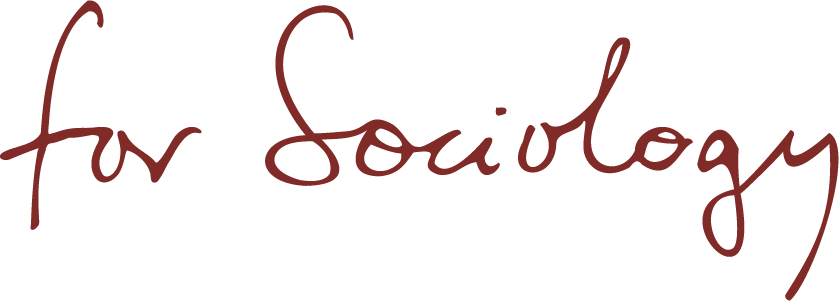How did you get into Sociology?
Like a lot of other sociologists, accidentally. Few people grow up wanting to be sociologists. In my case, I came out of three years of grueling military service desperate for intellectual stimulation. I was so eager to start, I enrolled in the summer semester in Tel-Aviv University. I wanted to study psychology, on some vague idea that I am interested in “people” (I was 21, so I may be excused the naivete), but at Tel-Aviv University psychology had to be combined as a double major with some other discipline. Sociology was offered in the summer, so I picked it, knowing almost nothing about it. I took an introductory course that truly opened my eyes. Then, in the fall, I took sociological theory – Marx, Durkheim, Weber – with a truly gifted teacher (Avraham Cordova, who mentored a whole generation of Israeli sociologists), who knew how to connect the philosophical questions underpinning social theory with burning present-day questions and concerns. I was hooked. I acquired, as Bourdieu would say, the taste for the sociological illusio, through seeking recognition from a sociological “significant other.” In psychology, on the other hand, I took research methods and was thus fully exposed to this discipline’s wannabe scientific complex. I was repelled. In the background, indeed, were operating forces of attraction and repulsion that can be traced to social position, habitus and transformations of the social space of Israeli society at the time. Sociology was acquiring a position as the critical discipline par excellence in a society that was becoming more ideologically heterogenous, and many other individuals of my generation and middle-class origins were moving in the direction of intellectual dissent. I was part of a wave, but without the accidents of biography, I might have found myself practicing a completely different intellectual trade.
What makes you sociologically curious?
Surprising combinations and associations, outlandish improbable connections between things that are deemed totally unrelated – the Protestant Ethic and Capitalism; marital status and suicide; occupational career and musical taste; the printing press and national identity; greeting rituals and ‘the cult of the individual’; germ theory and the transformation of the French state. I could go on. The best known, canonical sociological studies always show us that what seem like silos, enclosed or even antagonistic spheres, are in fact nodes in a network of associations. When I begin a new research topic, what makes me most excited and curious is the opportunity to transgress the boundaries – commonsensical or scholarly – that have been erected around it, showing how it may be related in systematic and consequential ways to what has been considered irrelevant, completely different, or unworthy of attention. In a sense, C. Wright Mills already said it when he described the sociological imagination as “the capacity to shift from one perspective to another – from the political to the psychological; from the examination of a single family to comparative assessments of the national budgets of the world; from the theological school to the military establishment; from considerations of an oil industry to studies of contemporary poetry. It is the capacity to range from the most impersonal and remote transformations to the most intimate features of the human self – and to see the relations between the two.” That’s what grabbed me long ago in the introductory course I took, when I understood, for example, how “becoming a marihuana smoker” could be linked to Mead’s theory of how children are socialized. This is still what excites me about sociology.
What challenges does sociology face as a science?
Giddens said it best when he pointed out the complexity of what he called the ‘double hermeneutic’. Our concepts, theories and findings “circulate in and out of what it is they are about.” They are often built on common sense linguistic usages. Whatever scientific veneer we may give them, these origins are never too far from the surface. This means that whether they acknowledge it or not, social scientists measure the adequacy of their definitions against some baseline meaning deriving from common sense usage. At the same time, sociological modes of describing social reality come to infuse the thinking of social actors. Since social action is always ‘under description’, we see ourselves reflected – not always charitably – in what we study. This means that whatever scientific ambitions sociology may have, it can never stray too far from the “emic” level of how social actors think, and yet this level provides no resting point, no solid ground on which to build an edifice. This why I have always been wary of calling sociology a “science.” To be truly scientific, if you will, sociology has to shed the false self-confidence that calling itself a “science” bestows.
Gil Eyal is Professor of Sociology at the Department of Sociology and Director of “The Trust Collaboratory“ (INCITE) at the Columbia University, New York.


